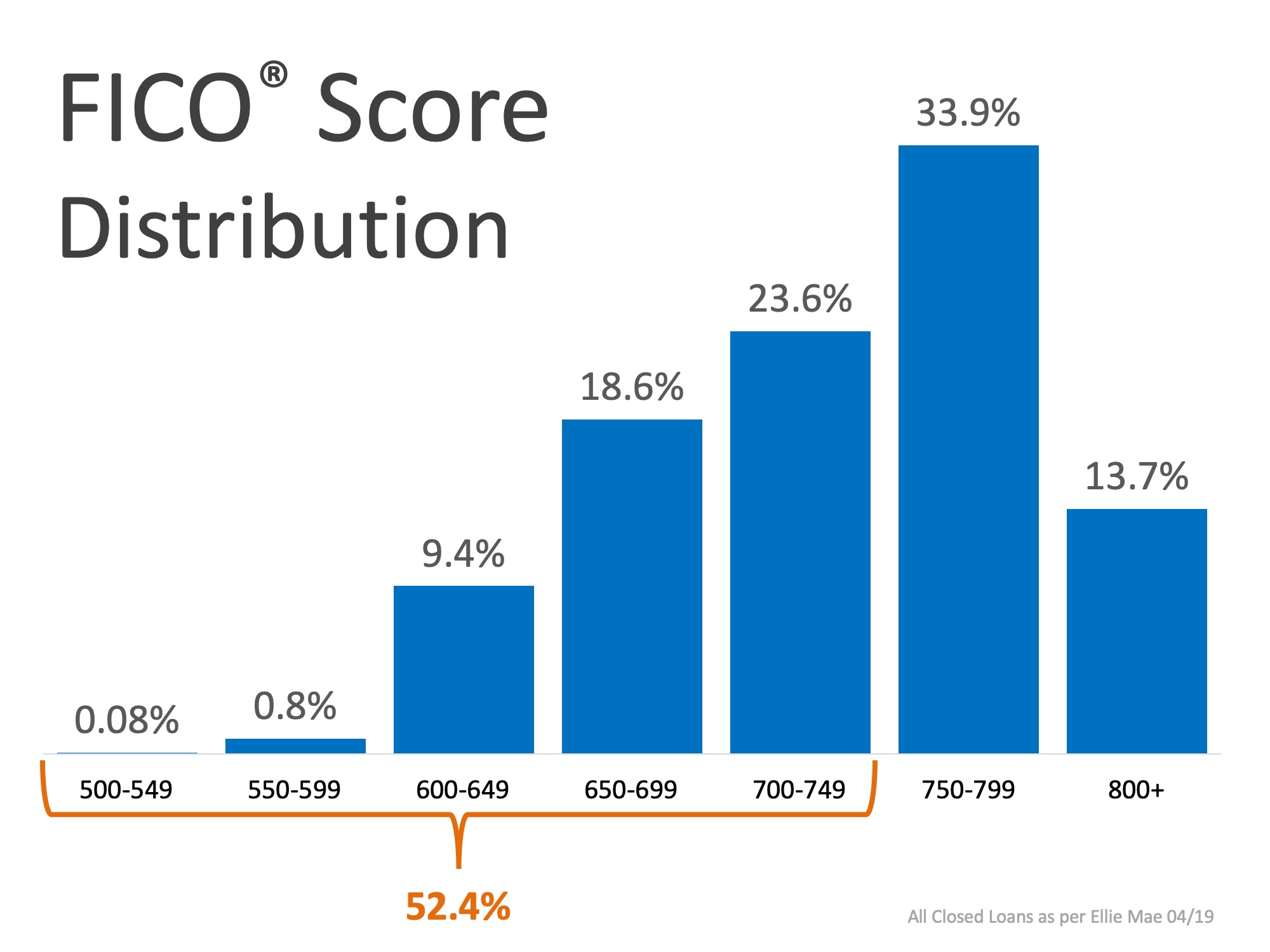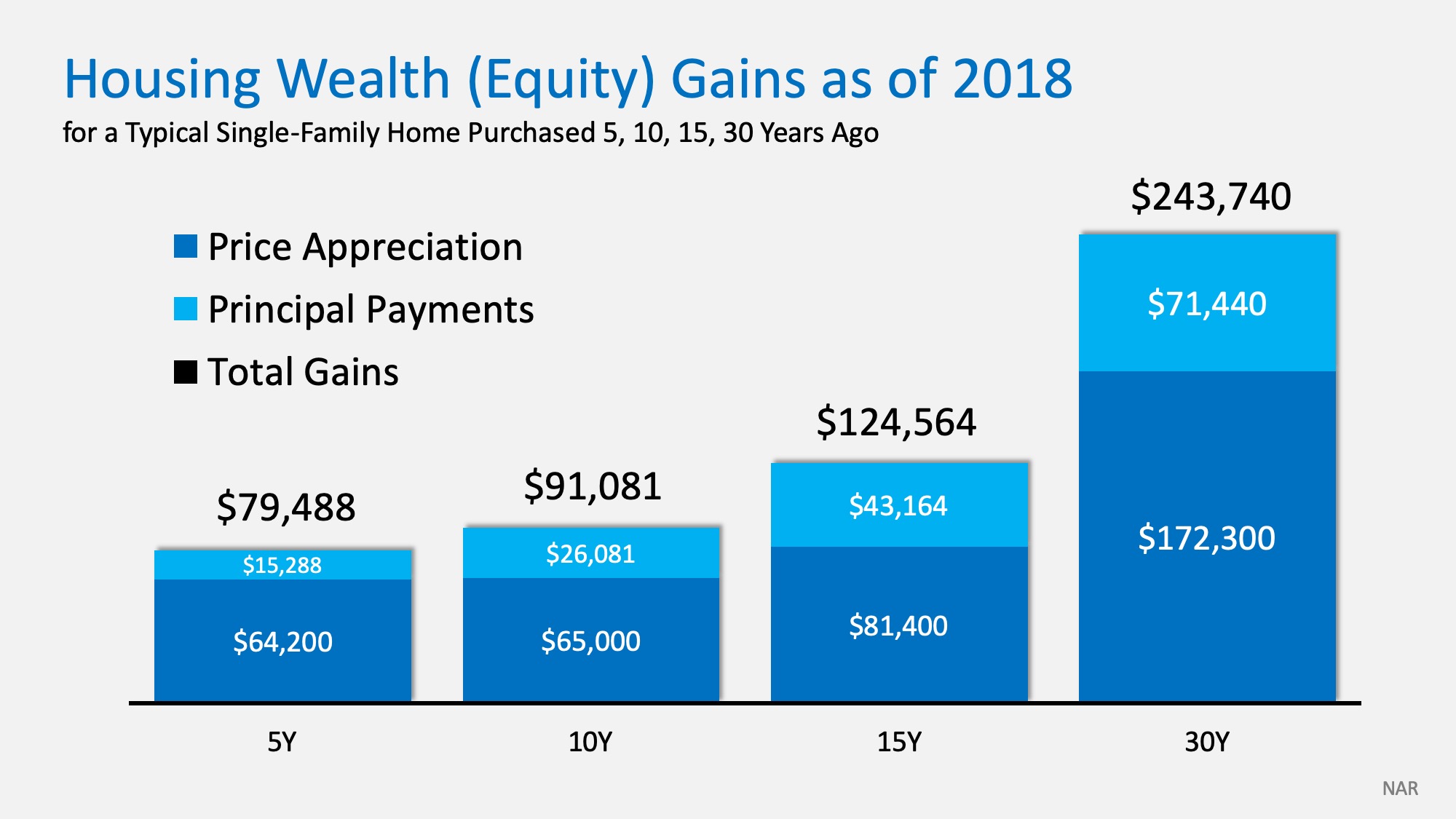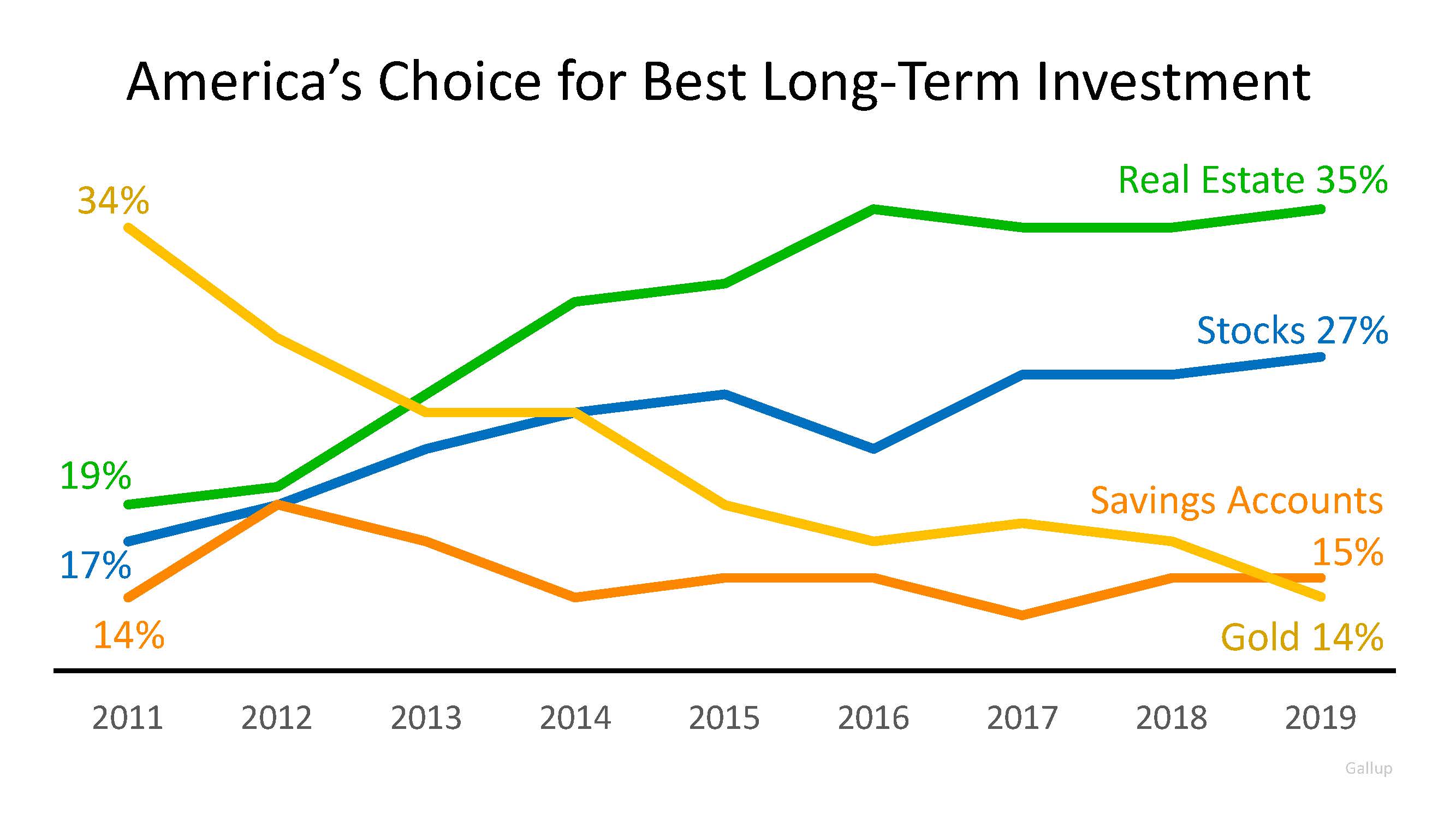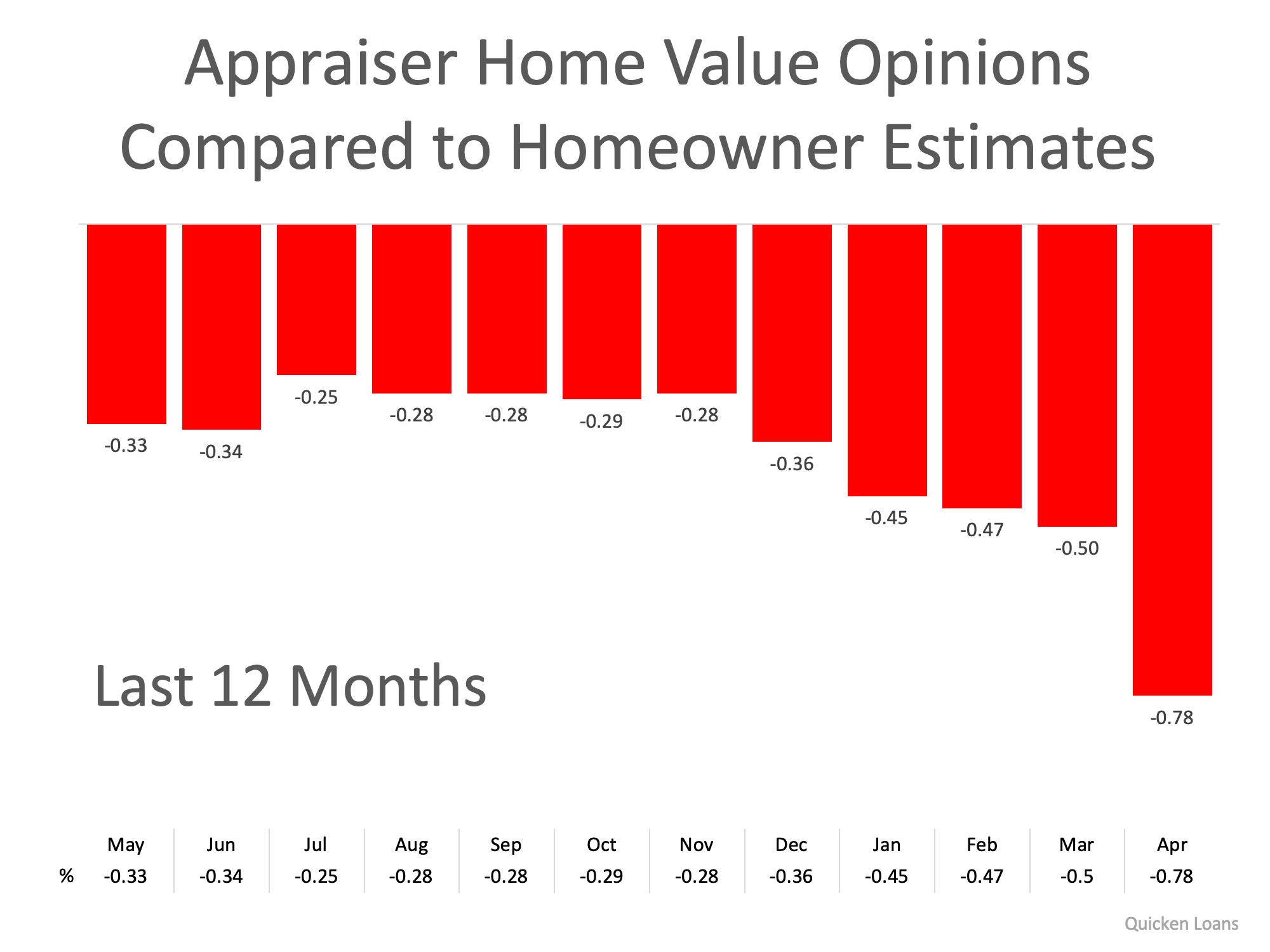2 Myths Holding Back Home Buyers

Freddie Mac recently released a report entitled, “Perceptions of Down Payment Consumer Research.” Their research revealed that,
“For many prospective homebuyers, saving for a down payment is the largest barrier to achieving the goal of homeownership. Part of the challenge for those planning to purchase a home is their perception of how much they will need to save for the down payment…
…Based on our recent survey of individuals planning to purchase a home in the next three years, nearly a third think they need to put more than 20% down.”
Myth #1: “I Need a 20% Down Payment”
Buyers often overestimate the funds needed to qualify for a home loan. According to the same report:
22% of renters and 31% of homeowners believe lenders require 20% or more of a home’s sale price as a down payment for a typical mortgage today. And,
“If a 20% down payment was required, 70% of those who were planning to buy a home in the next three years said it would delay them from purchasing and nearly 30% indicated they would never be able to afford a home.”
While many believe at least 20% down is necessary to buy the home of their dreams, they do not realize programs are available which permit as little as 3%. Many renters may actually be able to enter the housing market sooner than they ever imagined!
Myth #2: “I Need a 780 FICO® Score or Higher to Buy”
Many either don’t know or are misinformed concerning the FICO® score necessary to qualify, believing a ‘good’ credit score is 780 or higher.
To debunk this myth, let’s take a look at Ellie Mae’s latest Origination Insight Report, which focuses on recently closed (approved) loans. As indicated in the chart above, 52.4% of approved mortgages had a credit score of 600-749.
As indicated in the chart above, 52.4% of approved mortgages had a credit score of 600-749.
Bottom Line
Whether buying your first home or moving up to your dream home, knowing your options will make the mortgage process easier. Your dream home may already be within your reach.
4 Reasons to Buy A Home This Summer

Here are four reasons to consider buying today instead of waiting.
1. Prices Will Continue to Rise
CoreLogic’s latest U.S. Home Price Insights reports that home prices have appreciated by 3.7% over the last 12 months. The same report predicts that prices will continue to increase at a rate of 4.8% over the next year.
Home values will continue to appreciate. Waiting may no longer makes sense.
2. Mortgage Interest Rates Are Projected to Increase
Freddie Mac’s Primary Mortgage Market Survey shows that interest rates for a 30-year fixed rate mortgage have started to level off around 4.3%. Most experts predict that rates will rise over the next 12 months. The Mortgage Bankers Association, Fannie Mae, Freddie Mac, and the National Association of Realtors are in unison, projecting rates will increase by this time next year.
An increase in rates will impact YOUR monthly mortgage payment. A year from now, your housing expense will increase if a mortgage is necessary to buy your next home.
3. Either Way, You Are Paying a Mortgage
Some renters have not yet purchased a home because they are uncomfortable taking on the obligation of a mortgage. Everyone should realize that unless you are living with your parents rent-free, you are paying a mortgage – either yours or your landlord’s.
As an owner, your mortgage payment is a form of ‘forced savings’ which allows you to have equity in your home that you can tap into later in life. As a renter, you guarantee your landlord is the person with that equity.
Are you ready to put your housing cost to work for you?
4. It’s Time to Move On with Your Life
The ‘cost’ of a home is determined by two major components: the price of the home and the current mortgage rate. It appears that both are on the rise.
But what if they weren’t? Would you wait?
Examine the actual reason you are buying and decide if it is worth waiting. Whether you want to have a great place for your children to grow up, greater safety for your family, or you just want to have control over renovations, now could be the time to buy.
Bottom Line
If the right thing for you and your family is to purchase a home this year, buying sooner rather than later could lead to substantial savings.
The Top Reasons to Own Your Home
![The Top Reasons to Own Your Home [INFOGRAPHIC] | MyKCM](https://files.mykcm.com/2019/05/06113418/Homeownership-Month-ENG-STM-1046x1354.jpg)
Some Highlights:
- June is National Homeownership Month!
- Now is a great time to reflect on the many benefits of homeownership that go way beyond the financial.
- What reasons do you have to own your own home?
The Feeling You Get from Owning Your Home

We often talk about the financial reasons why buying a home makes sense. But, more often than not, the emotional reasons are the more powerful and compelling ones.
No matter what shape or size your living space is, the concept and feeling of home can mean different things to different people. Whether it’s a certain scent or a favorite chair, that feeling of safety and security you gain from owning your own home is simultaneously one of the greatest and most difficult to describe.
Frederick Peters, a contributor for Forbes, recently wrote about that feeling, and the pride that comes from owning your own home.
“As homeowners discover, living in an owned home feels different from living in a rented home. It’s not just that an owner can personalize the space; it touches a chord even more fundamental than that.
Homeownership enhances the longing for self-determination at the heart of the American Dream. First-time homeowners, young or old, radiate not only pride but also a sense of arrival, a sense of being where they belong. It cannot be duplicated by owning a 99-year lease.”
Bottom Line
Owning a home brings a sense of accomplishment and confidence that cannot be achieved through renting. If you are debating renewing your lease, let’s get together before you do to answer any questions you may have about what your next steps should be, and what is required in today’s market!
What is Important to Boomers when Selling their House?

If you are a “baby boomer” (born between 1946 and 1964), you may be thinking about selling your current home. Your children may have finally moved out. Your large, four-bedroom house with three bathrooms no longer fits the bill. Taxes are too high. Utilities are too expensive. Cleaning and repair are too difficult. You may be ready to move into a home that better fits your current lifestyle. Many fellow boomers have already made the move you may be considering.
The National Association of Realtors recently released their 2019 Home Buyer and Seller Generational Report. The report revealed many interesting tidbits about both categories of baby boomers: younger boomers (ages 54 to 63) and older boomers (64 to72). Here are a few of the more interesting topics.
Percentage of Buyers who Looked Online First
- All Buyers: 44%
- Younger Boomers: 46%
- Older Boomers: 44%
Where Boomers Found the Home They Purchased
The two major ways buyers found the home they purchased:
- All buyers: 50% on the internet, 28% through a real estate agent
- Younger Boomers: 46% on the internet, 33% through a real estate agent
- Older Boomers: 36% on the internet, 35% through a real estate agent
Distance Seller Moved
The distance between the home they purchased and the home they recently sold was much greater for boomers than the average seller.
- All sellers: 20 miles
- Younger Boomers: 27 miles
- Older Boomers: 50 miles
Tenure in Previous Home of Seller
The percentage of older boomers who lived in their previous home for more than 20 years was almost twice the amount of the average seller.
- All sellers: 16%
- Younger Boomers: 20%
- Older Boomers: 31%
Primary Reason to Sell their Previous Home
- Want to move closer to friends or family
- Home too large
- Retirement
View of Homeownership as a Financial Investment
- 83% of Younger Boomers see homeownership as a good investment
- 82% of Older Boomers see homeownership as a good investment
Bottom Line
If you are a boomer and thinking about selling, now might be the time to contact an agent to help determine your options.
How Homeownership Delivers Unsurpassed Family Wealth

There are many financial benefits to homeownership, but probably none more important than its ability to create family wealth.
How Housing Matters is a joint project of the Urban Land Institute and the MacArthur Foundation. It is an online resource for research and information on how homeownership contributes to individual and community success.
Their article, The First Rung on the Ladder to Economic Opportunity Is Housing, explains the importance of homeownership to a family’s financial health. In that article, they simply stated:
“The ladder to economic success can stretch only so high without the asset-building power of homeownership.”
To this point, National Association of Realtors’ (NAR) Economists’ Outlook Blog revealed in a recent post:
“Housing wealth contributes positively to the homeowner’s and children’s economic condition, because home equity can be tapped for expenditures such as investing in another property (which can generate rental income), home renovation (which further increases the home value), a child’s college education, emergency or major life events, or expenses in retirement…
Housing wealth (or net worth or equity) is built up over time via the home price appreciation and the principal payments that the homeowner makes on the loan.”
Here is a graph showing the build-up of wealth over time: Just last month, NAR’s Chief Economist, Lawrence Yun, explained that even though home appreciation has slowed, homeowners are still building wealth:
Just last month, NAR’s Chief Economist, Lawrence Yun, explained that even though home appreciation has slowed, homeowners are still building wealth:
“Homeowners in the majority of markets are continuing to enjoy price gains, albeit at a slower rate of growth. A typical homeowner accumulated $9,500 in wealth over the past year.”
Later in life, this wealth is crucial…
This wealth is important to a family’s retirement plans. In a recent report from the Joint Center for Housing Studies at Harvard University titled, Housing America’s Older Adults 2018, they revealed that a renter 65 years old or older has a net worth of $6,710. Meanwhile, a homeowner 65+ years old has a net worth of $319,200. That huge difference will allow for a dramatic upgrade in one’s lifestyle during your retirement years.
Bottom Line
Homeownership builds wealth. This, in turn, allows families to have more and better options when it comes to their children and their life in retirement.
4 Most Popular Bottom Line Investments in America

Every year, Gallup surveys Americans to determine their choice for the best long-term investment. Respondents are given a choice between real estate, stocks, gold, and savings accounts.
For the sixth year in a row, real estate has come out on top as the best long-term investment! That has not always been the case. Gallup explains:
“Between 2008 and 2010, covering most of the Great Recession period that saw plummeting home and stock values, Americans were as likely to name savings accounts or CDs as the best long-term investment as they were to name stocks or real estate.”
This year’s results showed that 35% of Americans chose real estate, followed by stocks at 27%. The full results are shown in the chart below.
Bottom Line
Now that the real estate market has recovered, so has the belief of the American people in the stability of housing as a long-term investment.
The Impact Staging Your Home Has On Your Sale Price
![The Impact Staging Your Home Has On Your Sale Price [INFOGRAPHIC] | MyKCM](https://files.mykcm.com/2019/05/06103923/To-Stage-ENG-STM-1046x808.jpg)
Some Highlights:
- The National Association of Realtors surveyed their members & released the findings of their Profile of Home Staging.
- 62% of seller’s agents say that staging a home decreases the amount of time a home spends on the market.
- 50% of staged homes saw a 1-10% increase in dollar-value offers from buyers.
- 77% of buyer’s agents said staging made it easier for buyers to visualize the home as their own.
- The top rooms to stage in order to attract more buyers are the living room, master bedroom, kitchen, and dining room.
2 Things You Need to Know to Properly Price Your Home

In today’s housing market, home prices are increasing at a slower pace (3.7%) than they have over the last eight years (6-7%). However, they are still are above historical norms. Low supply of listed homes and high demand from buyers has pushed prices to rise rapidly.
In the mind of the homeowner, annual home price appreciation over 6% has become the new normal. This becomes a challenge when a homeowner looks to refinance or sell their home, as the expectation of what the homeowner believes the home should be worth does not always line up with the bank’s appraisal.
Every month, the Home Price Perception Index (HPPI) measures the disparity between what a homeowner seeking to refinance their home believes their house is worth and what an appraiser’s evaluation of that same home is.
Over the last five months, the gap between the homeowner’s opinion and the bank’s appraisal has widened to -0.78%. This is important for homeowners to note, as even a 0.78% difference in appraisal can mean thousands of dollars that a buyer or seller would have to come up with at closing (depending on the price of the home).
The chart below illustrates the changes in home price estimates over the last 12 months.
While the appraisal gap widens, another trend is also becoming more common.
According to realtor.com, “the share of homes which had their prices cut increased by 2% compared to last year”. Thirty-seven out of the 50 largest US housing markets saw an increase in overall price reductions.
In today’s market, you need an expert agent who can help price your house right from the start. Homeowners who make the mistake of overpricing their homes will eventually have to drop the price. This leaves buyers wondering if the price drop was caused by something wrong with the house. In reality, nothing is wrong- the price was just too high!
Bottom Line
If you are planning on selling your house in today’s market, let’s get together to set your listing price properly from the start!



